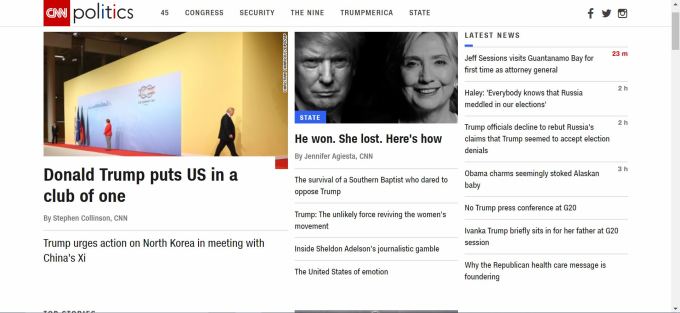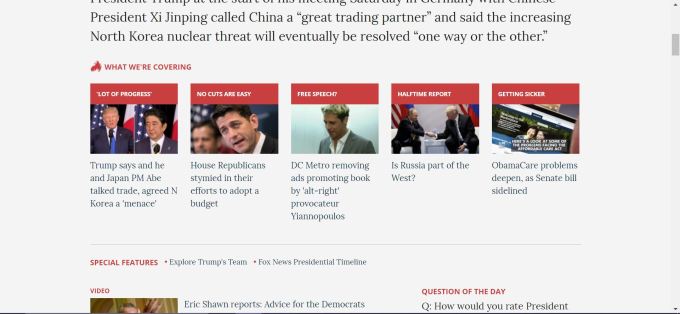It’s no secret that political parties now lie at opposite sides of the spectrum. Nowadays divulging your political party is akin to claiming a religion that is intolerant of others. I use this analogy because political parties often operate like religions. They exist of tight knit communities, that have a set of morals and ideals they believe the world should abide by. Those who disagree with this sentiment are often regarded with scorn, and if you happened to share with Facebook this presidential season who you voted for and why, you probably lost a few Facebook friends in the process.
I won’t try to say that this is uncommon. For centuries, political parties have been at wars with each other, each trying to push their party into the position of power and majority. However, it is only recently that the polarization of parties has been encouraged. Media, both right and left, has been contributing to the headstrong attitude that political parties members already retain. If you’ve paid attention to President Trump’s recent antics, you’d know about his hatred for CNN, which he mockingly refers to as “Fake News Network” or “FNN”. To Republicans, CNN is a repeat offender, manipulating the public into rejecting Republicans, and using language to encourage others of “fake news”. If you navigate your way through CNN’s website page for politics, it isn’t hard to point out.

This screenshot was taken from the website on July 8, 2017. In it you can see how the word choice significantly contributes to fueling hatred towards the opposite party. Inflaming article titles such as “The survival of a Southern Baptist who dared to oppose Trump” and “Haley: Everybody knows that Russia meddled in our elections” which are suggestive of a tyrannical Republican government fill the page. Each title serves as evidence to an agenda fulfilling network. Shocker. CNN is widely known to be a Democratic media outlet, so the surprise is little.
But CNN is not the only news network guilty of this. Its counterpart, Fox News, a renown right-wing news network, similarly utilizes the same tactics.

While the number of articles is significantly dwarfed by the number of articles present in the CNN screenshot, the concept is the same. Fox News writes “Obamacare problems deepen, as Senate bill sideline” and “House Republicans stymied in their efforts to adopt a budget” suggesting that the left-wing is responsible for many of the government’s problems. Each network points the finger at each other. And this warfare is executed using language and practicing selectivity by choosing which stories will be covered over others. Similar topics will be written about in very different lights, or simply not covered at all, in order to withhold valuable, maybe even game changing political stories simply to fuel the fire.
This tactic has been around so long media has been alive, there were political newspapers going back to America’s conception that had allegiances to parties and served as propaganda. Now, both CNN and Fox New’s use of articles is responsible for shaping millions of American’s political opinions. Which is admittedly a big deal. Ideally, news networks should be all encompassing, serving up information without the embellishment of political bias. The purpose is just to inform the public right? However, since both CNN and Fox News do not claim to be unaffiliated or even non-partisan, we can’t really try to hold news networks accountable for the influence they have over the public. Attempting to hold them towards some sort of gold standard, in which reporters only report the super detailed truth and nothing but, is simply ridiculous. If all reporters did that, we’d only need one news network. But because news networks have agendas, things they support and rebuke, there is a plethora of news networks. And it is up to the public to decide which network they prefer. I say the word “prefer” here because someone might opt out of choosing a more non-partisan network because they may be a Republican or Democrat unwilling to here any oppositional news or opinions contrary to their own.
In a perfect world, we’d all be willing to hear other’s opinions, but let’s face it, we don’t want to hear news that might somehow shake or change our set beliefs. If we bring back the religion analogy, a zealot might choose to ignore the new evolution study because they are unwilling to entertain the risk of their beliefs being challenged. For a moderate like myself who favors a panoramic briefing, rather than a one-sided one, it means extra work: watching several different news outlets, partisan and non-partisan.
